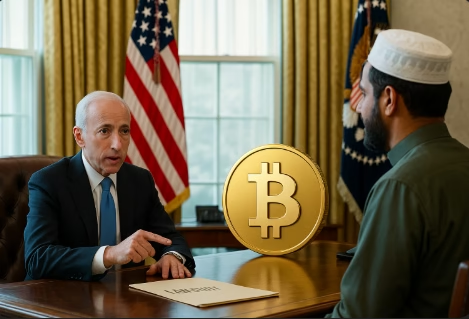The International Monetary Fund (IMF) has rejected a proposal for Pakistan Bitcoin mining electricity subsidy. The decision comes despite Pakistan having significant surplus energy capacity and seeking to establish itself as a regional hub for cryptocurrency activity.
Power Secretary Fakhar Alam Irfan confirmed the rejection during a Senate Standing Committee on Energy meeting, revealing that the IMF expressed concerns about “market destabilization” from the proposed subsidies.
This development is a major setback for Pakistan Bitcoin mining aspirations and its attempts to monetize unused energy infrastructure.
The IMF’s stability concerns
The IMF’s opposition centers on fears that subsidized electricity rates for Bitcoin mining could create dangerous economic precedents.
“Targeted energy subsidies risk distorting entire markets and creating fiscal imbalances we’ve seen in other sectors,” an IMF spokesperson told Independent Urdu.
The institution reportedly compared the proposal to past sector-specific tax breaks that ultimately weakened Pakistan’s economy.
Pakistan had proposed offering electricity at PKR 22-23 (about $0.80) per kilowatt-hour to energy-intensive industries, including Bitcoin mining operations.
While proponents argued this would utilize surplus capacity, the IMF warned it could exacerbate existing problems in Pakistan’s troubled power sector, where some regions already endure 14-hour daily blackouts despite paying customers.

Pakistan Bitcoin mining gambit
The Pakistan Crypto Council (PCC), led by CEO Bilal Bin Saqib, had championed the subsidy plan as a way to transform wasted energy into economic opportunity. “We’re sitting on unused power while Bitcoin mining could generate jobs and foreign investment,” Saqib argued in May when announcing plans for a national Bitcoin reserve.
The proposal was part of Pakistan’s broader push into digital assets, including creating official cryptocurrency wallets and exploring blockchain solutions. Some analysts suggest Pakistan Bitcoin mining ambitions were partly inspired by global trends, including the pro-crypto stance of recent U.S. leadership.
“The world is moving toward digital assets, and Pakistan shouldn’t be left behind,” Saqib previously stated.
Energy realities versus crypto dreams
The rejection highlights Pakistan’s difficult balancing act between IMF-mandated reforms and technological development. While Bitcoin mining could theoretically absorb surplus energy, critics note that Pakistan’s power sector suffers from chronic inefficiencies.
Senators at the energy committee meeting pointed to “forced load-shedding” in Tharparkar, Matiari and Umerkot as evidence the system can’t reliably serve existing customers, let alone power-hungry Bitcoin mines.
Power Minister Awais Leghari’s absence from the critical meeting further fueled frustrations about the government’s handling of energy policy. However, officials confirm the Bitcoin mining subsidy proposal remains under discussion with international partners, including the World Bank.

Global context of crypto energy debates
Pakistan isn’t alone in grappling with Bitcoin mining’s energy demands. Several countries have experimented with crypto mining incentives, with mixed results.
Neighboring Iran initially embraced Bitcoin mining but later imposed restrictions when energy shortages worsened. Kazakhstan similarly attracted miners before grid instability forced policy reversals.
For Pakistan, the challenge is particularly acute. The country’s Bitcoin mining aspirations collide with its $3 billion IMF bailout program, which demands strict fiscal discipline. As one energy analyst noted:
“Subsidizing Bitcoin mining while citizens face blackouts would be politically explosive, regardless of the long-term potential.”
Despite the setback, Pakistan appears committed to developing its digital asset ecosystem. The government continues developing its national Bitcoin wallet system and exploring blockchain applications.
However, the IMF’s rejection suggests the Pakistan Bitcoin mining sector may need to develop without special energy privileges, a significant hurdle for an industry where electricity costs make or break profitability.

Leave a Reply